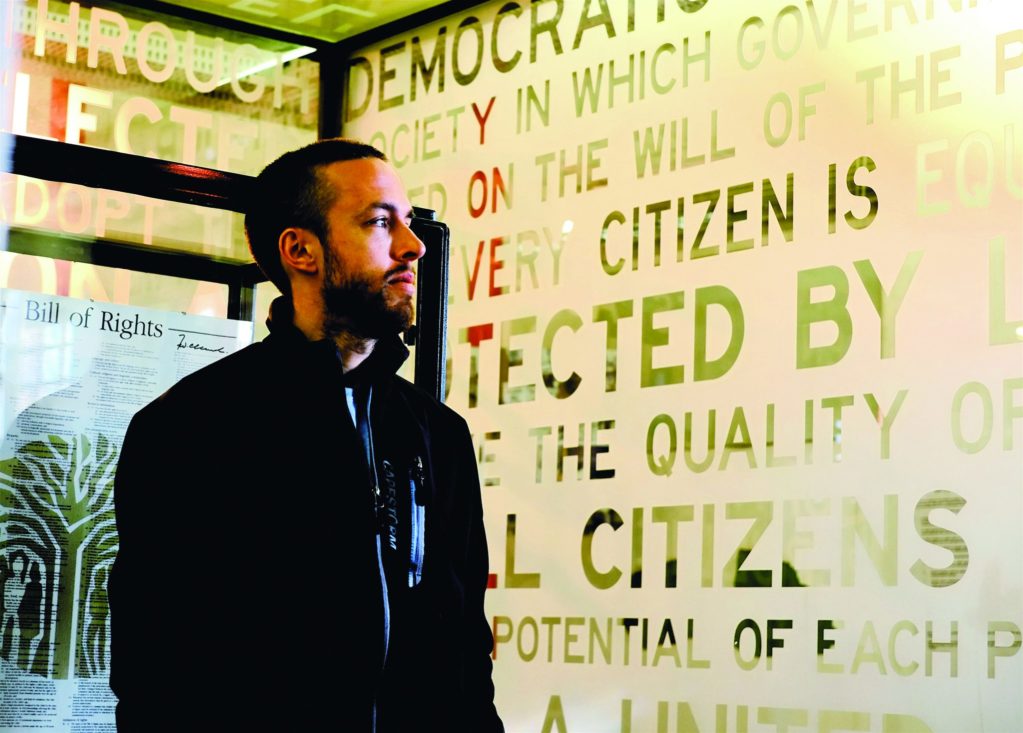A few days before Yusuf Randera-Rees left for Oxford University, he lay alongside a pool at a game reserve, basking in the African sun. It was another rare opportunity for the Harvard graduate. He cast his eye on the people walking by.
“I know there are people here who are more talented than me, smarter than me and more talented than the people I was with at Harvard, or at least they could compete. I see these people every day and yet I’m about to go off to Oxford and these people are never going to get that chance,” says Randera-Rees.
Randera-Rees took these thoughts with him to Oxford where he met a fellow student who shared his vision. Together they conceptualized the idea for a business that would later become the Awethu Project. The company is dedicated to turning poor people into successful entrepreneurs.
In their first year at university, the two men entered the 21st Century Challenge – a business competition at Oxford University that recognizes solutions to worldwide problems. After being shortlisted for the $40,000 cash prize, they dreamed of spending it.
“We didn’t win, we were told the idea was aspirational, which really pissed me off,” says Randera-Rees.
The winning team came up with a business that used wheelbarrows to purify water for women in the villages.
Randera-Rees was unimpressed.
“You want the idea of an African women walking to the village; you don’t want the idea of Africans who can compete with you.”
He completed two Master’s degrees, in Financial Economics and African Studies, and moved back to Johannesburg where he worked on bringing the Awethu Project to life.
Randera-Rees saw a market in the many people who were excluded from becoming entrepreneurs because government funding and investors require a business plan, a certain amount of turnover and qualifications.
At 26, Randera-Rees moved back in with his parents and started the business with the $5,600 he had saved. He headed for the township of Alexandra where he promoted the company with flyers, posters and radio adverts. Within weeks, he garnered interest from more than 1,000 people. From the large pool of applicants, three were chosen.
“On a test of pure cognitive ability, compared to an American norm group, so basically compared to a world standard, these guys scored in the top three percent in the world. So they’re in the top three percent of intelligence compared to anybody else in the world and they’re sitting, not contributing nearly as much as they could.”
After a bumpy start, the Awethu Project received a $280,000 investment from financial services group Discovery Holdings and later $6.5 million from other investors. This made it possible for a taxi driver, airport baggage handler and cleaner to start businesses.
Each entrepreneur receives between $90,000 and $470,000 in co-investment from the Awethu Project. Over the years, they are guided by one of the company’s 25 mentors. After six years, the entrepreneurs need to pay the money back and also have the option to gain ownership of the company.
“First the entrepreneur earns it and then we empower… The big problem with the South African empowerment model is empowerment first and earning is later,” says Randera-Rees.
Empowerment and equality are principles Randera-Rees values. He grew up in a mixed-race family during apartheid. His dad, an Indian doctor, left the country at the age of 17, and went to England where he met his wife, a white doctor. The two moved to South Africa in 1984 where they were subject to constant discrimination. Randera-Rees’ dad worked in Soweto and his mom worked in Alexandra.
“To see their example was important to me. They did what they needed to do because they believed in it and for no other reason.”
With offices seated at the heart of Constitutional Hill overlooking the hustle and bustle of downtown Johannesburg, Randera-Rees looks down and smiles. Where some see dust; he only sees gold.
